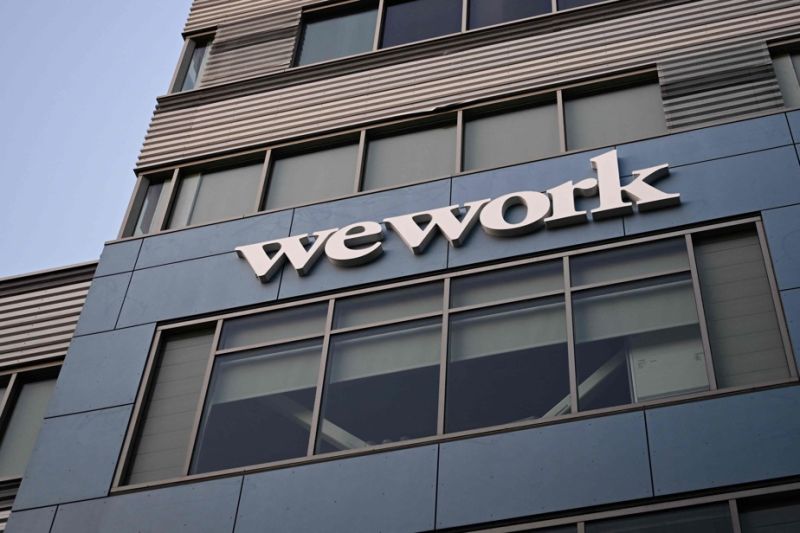At the end of 2023, WeWork was placed in receivership. The business model of this American specialist in shared workspaces had taken it to the highest peaks of stock market valuations at $50 billion. But the company faltered in the wake of the pandemic, which accelerated telecommuting in companies, and also due to poor management of its operating costs. Having come a long way, the company is counting on the recent rationalization of its real estate assets to make a strong comeback in the professional landscape.
Telling the story of WeWork is not just about the dangers inherent in corporate hypergrowth and the hybris of the corporate decision-maker. The story of a charismatic leader so plagued by megalomaniac behavior that he was forced out of his own company by the Japanese investment fund Softbank, the same company that had made him king…
It’s also about discovering the hidden power of words in a pitch that can take you to the top… provided, of course, you can deliver on your promises to investors.
For example, WeWork’s controversial co-founder and CEO, Adam Neumann, had no qualms about turning what wasa simple real estate subletting company (with no real estate assets)… into a tech company. All this at a time when money was flowing and the word proptech was not yet circulating in the aisles of trade shows…
However, the WeWork adventure has not yet said its last word: placed in receivership at the end of 2023, and severely affected in the American and Canadian markets, the company could well be back on its feet… in Paris. This could be the result of a far-reaching restructuring and the retention of the company’s most solid locations.
An overvalued idea
Founded in New York in 2010, WeWork is the brainchild of Miguel McKelvey and the whimsical Adam Neumann. Together, they seek to reinvent the workspace. Two phenomena support their flair. On the one hand, employees and managers are suffering fromgrowing individualism in gray open spaces. On the other, modern-day buccaneers, freelancers and other entrepreneurs, tired of their solitude, are looking for networking opportunities.
In these high-end office buildings sub-let to professionals, conviviality and flexibility are the watchwords. The practice of coworking may already exist, but Adam Neumann’s idea of presenting WeWork as a tech company is as audacious as it is irresponsible.
From choosing the decor to managing the premises, everything is entrusted to the care of algorithms. To achieve this, every square meter of office space is fitted with sensors, generating millions of pieces of data: from chair occupancy and coffee consumption, to individualized desk heights and break times.
The CEO asserts, “Yes, we measure everything to see which spaces are used more or why certain things work better than others. We don’t rent offices, “ he continues, ” we sell an experience, a community. An experience sold at between 240 and 400 euros a month to freelancers. But very soon, the company had to expand its core target to include start-ups and large companies interested in flex office to stabilize their revenues.
Uncontrolled growth
Early 2019 was undoubtedly the high point for WeWork, then valued at nearly $47 billion, neck-and-neck with Twitter and Uber! Such insolent growth that the company announced its intention to go public the same year. The American company now manages 777 office buildings in 150 cities and 39 countries.
But while the company – unlike many start-ups – generated substantial sales of up to $2 billion in its best years, it also lost more than $3 billion a year! This shows that WeWork, with its 1.8 million square meters of office space, is in fact a giant with feet of clay, whose sales cannot absorb its debts.
Add to this the Adam Neumann problem, his brutal and sometimes even unmotivated decisions, not to mention his excessive spending with all-out acquisitions and his dispersion: in two words, a fuzzy manager. Megalo, Adam Neumann is also planning to extend the WeWork concept into a WeCompany. His plans include individual housing (WeLive), gyms and swimming pools (Rise by We), and the education of children from the age of two to instill in them an entrepreneurial spirit (WeGrow).
Worried by the company’s erratic management and the postponement of its IPO, Softbank, the company’s early financial backer, managed to buy back 80% of the company’s shares, thus removing the expensive CEO in September 2019.
A model to be reconfigured
Once separated from the controversial CEO, who was about to move into banking and EPHAD (WeBank and WeAge), the new majority shareholders decided to appoint a real estate expert to head the company , in the hope of turning it around. But the covid undermined WeWork’s already fragile foundations.
Especially since the pandemic has seen the emergence of a new way of working, telecommuting, and a new specimen who can work from home, the teleworker.
Once decried, the model is now being embraced across the oceans and through the pandemic, to the point where the company finds itself with almost empty office buildings that are impossible to make profitable. As a result, WeWork is now $18.6 billion in debt, while $100 million in rent remains unpaid.
In November 2023, WeWork had no choice but to file for bankruptcy in the hope of restructuring its debt. 400 sites in the United States and Canada were affected, while 3,400 employees were laid off.
In the midst of this hecatomb, France, the third-largest market, was relatively spared, retaining its 75 employees. Of the twenty or so sites in Paris and the inner suburbs, WeWork’s French subsidiary announced in April that it was shedding five shared office sites (in the 8th, 9th, 17th and 19th arrondissements and at La Défense) and closing three sites dedicated to single clients.
In a press release, WeWork France announced “thecompletion of the rationalization process for the company’s leases in Paris”. To turn around its business, the company intends to concentrate on “the company’s strongest Paris locations”. Its historic flagships on the Champs-Élysées and on Rue La Fayette in Paris are set to drive the ex-coworking giant forward.
According to a company spokesperson, “by renegotiating over 190 leases and exiting more than 170 underperforming sites worldwide, WeWork has significantly strengthened its financial position and is now on the path to sustainable profitability. He adds, “Thanks to its restructuring, WeWork has now eliminated more than $4 billion in pre-bankruptcy debt […] finding itself in a much stronger financial position than before its bankruptcy filing.”
The company has managed to generate “annual rent savings of over $800 million”.
The “WeCrashed” era – named after the Apple TV+ mini-series recounting the rise and fall of WeWork and its mischievous CEO – seems so farbehind us that last June, we could do without the return of Adam Neumann, himself, who came as a white knight to propose a 500 million euro takeover offer!
Read also > Jimmy Fallon: a star caught by his dark side
Featured Photo: © DR














